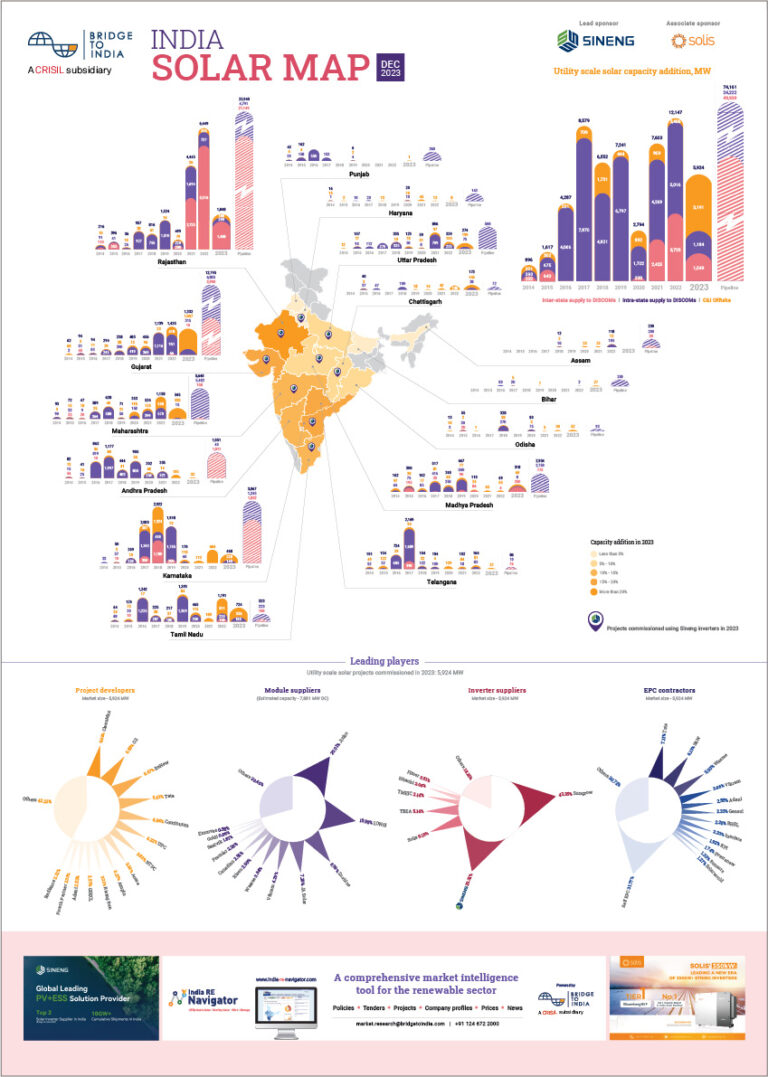“In order to fulfill my solemn duty to protect America and its citizens, the United States will withdraw from the Paris climate accord,” US President Donald Trump said last week. The move has already been criticized extensively within and outside the US. No other country seems willing to support the US, and in fact, the action has prompted several countries to reiterate their commitment to the climate accord. The reason simply is that renewable energy has crossed the point of no return. It is financially and operationally viable and the old ‘carrot and stick’ approach is fast becoming irrelevant. We see a limited short-term impact of this announcement within US and almost no impact on India.
- Most states and end-consumers, even within the US, will continue to accelerate adoption of renewable energy and other green energy programs because of their improving techno-commercial merits;
- As the US can only exit the accord after three years, many analysts point out that the decision could be overturned by a new US President before it is implemented;
- The US decision to withdraw from the Paris accord is unfortunate but largely, a non-event for India’s renewable energy sector;
Soon after President Trump said he would pull out of the Climate Agreement, governors of California, Washington, New York, Massachusetts, Vermont, Connecticut and Rhode Island, representing 15% of the country’s emissions, banded together to continue to work toward the global climate accord target. In addition, 30 leading US corporates including Citigroup, Coca-Cola, Corning, Dow Chemical, DuPont, General Electric, Goldman Sachs, also committed to continue meeting their targets. More states and businesses can be expected to follow suit. Equally important is the fact that according to Article 28 of the agreement, each country that enters into it must remain for three years. They may subsequently choose to withdraw but with one more year of notice. Many analysts point out that a new US President in early 2021 (or earlier) could overturn this decision before it is implemented. Overall, we believe that fallout from the Trump decision on renewable energy and electric vehicles will be very limited even in the US. There may be a limited short-term impact on new investment plans, which may, in turn, impact global supply chain and slow sector progress.
From India’s perspective, the Trump decision would, in all likelihood, be positive for attracting even more technology, investment and expertise from other countries. The US has been an important partner for Indian renewable sector. Overseas Private Investment Corporation (OPIC), the US development finance institution, has funded several Indian developers including Azure Power and ReNew Power. It has also recently committed to provide USD 400 million of financing as part of the US-India Clean Energy Finance Facility (USICEF) for rooftop solar. Meanwhile, United States Agency for International Development (USAID) has been supporting various capacity building and technical assistance initiatives (solar rooftop program for Indian Railways and Indian Oil, net metering programs in Bangalore and Jaipur, off-grid solar). However, the Indian government has maintained that the country’s renewable energy expansion is largely self-financed and the current level of financial support from developed nations is significantly below what was promised. We believe that India would be able to mitigate the impact by suitable planning and recalibration of various programs.
In our view, the US decision to withdraw from the Paris accord is unfortunate but largely, a non-event.












